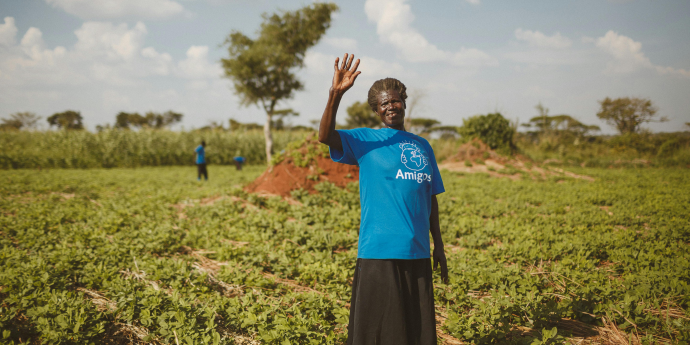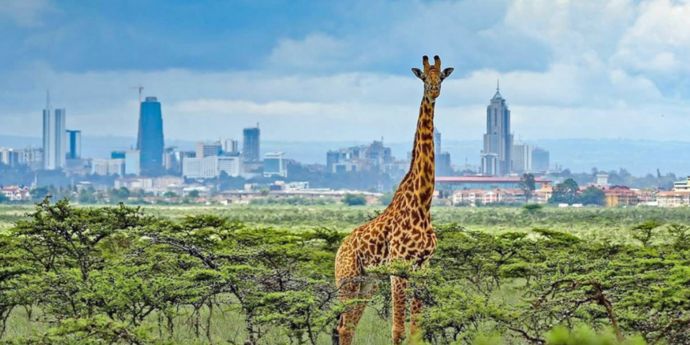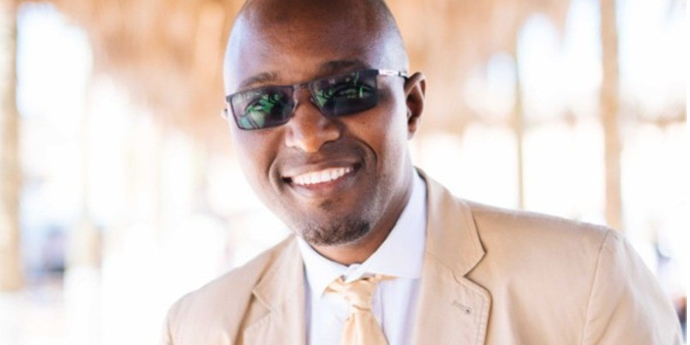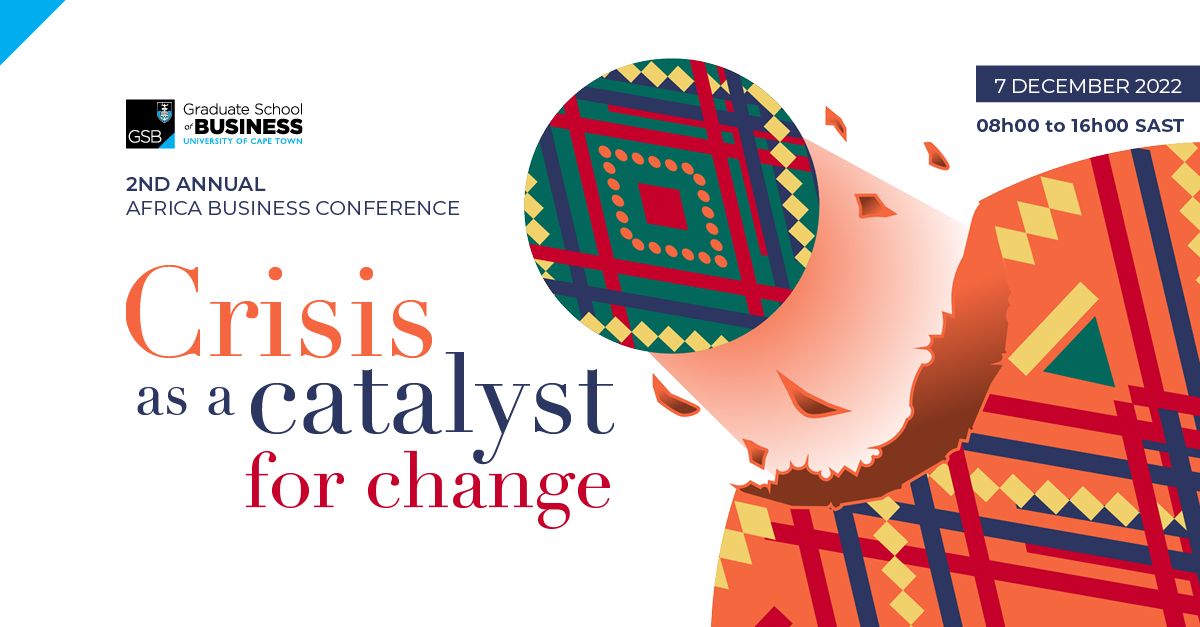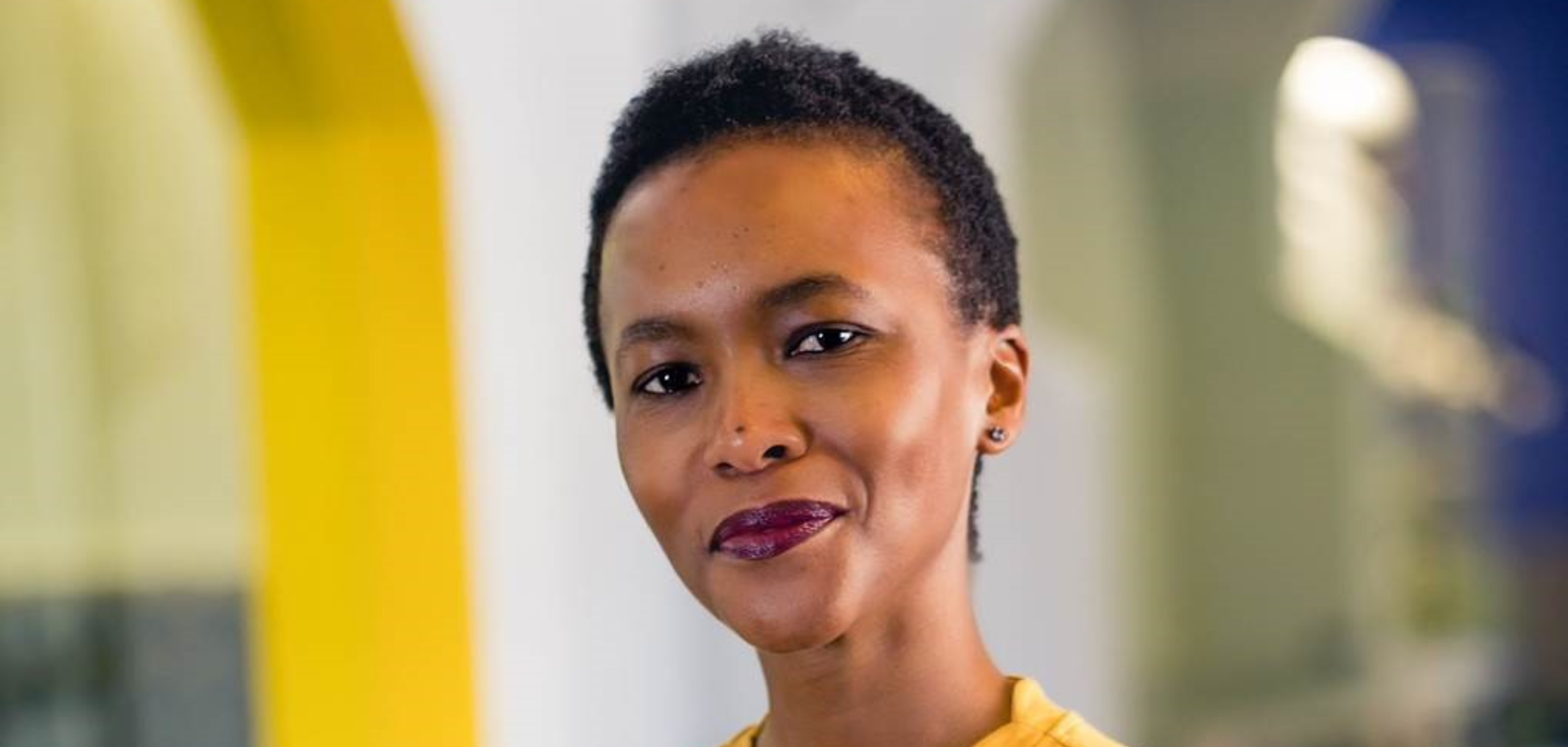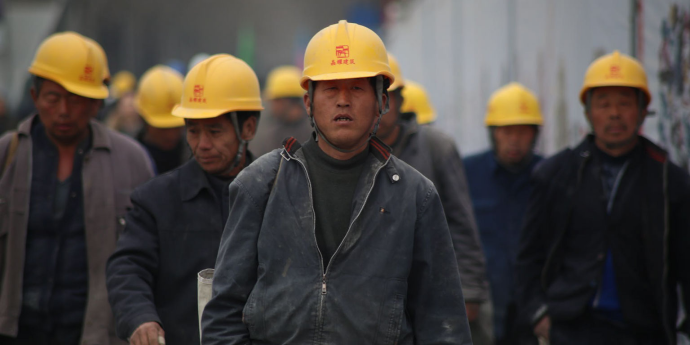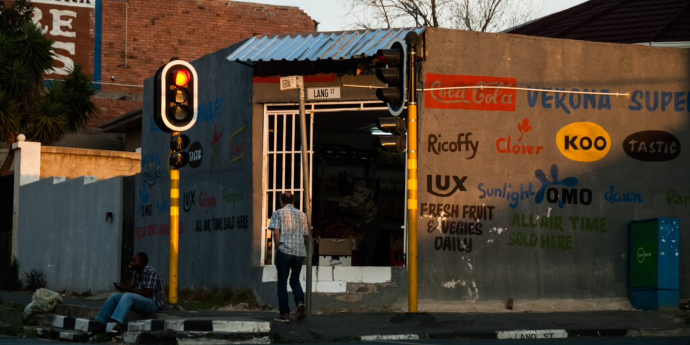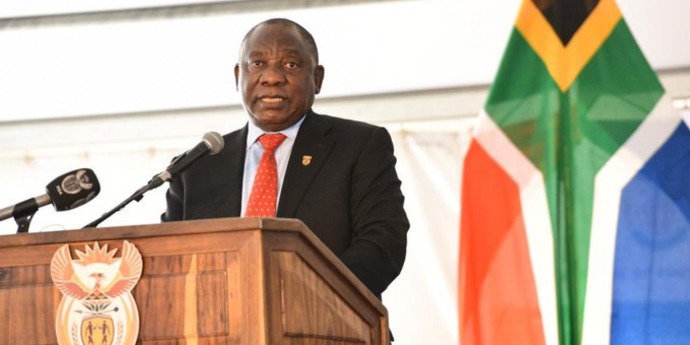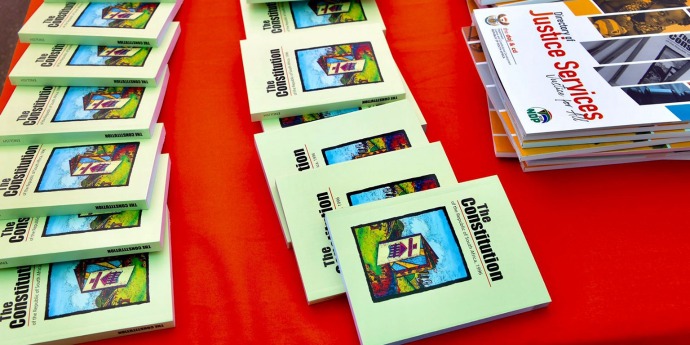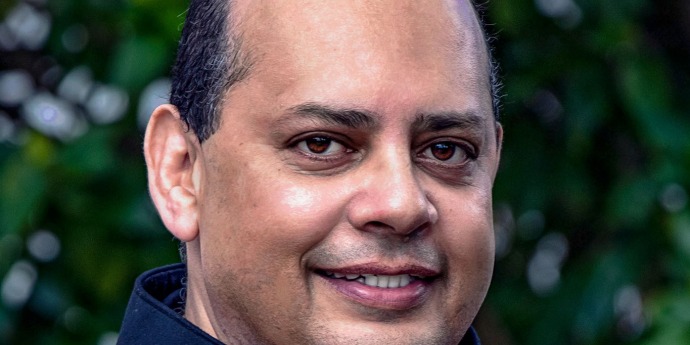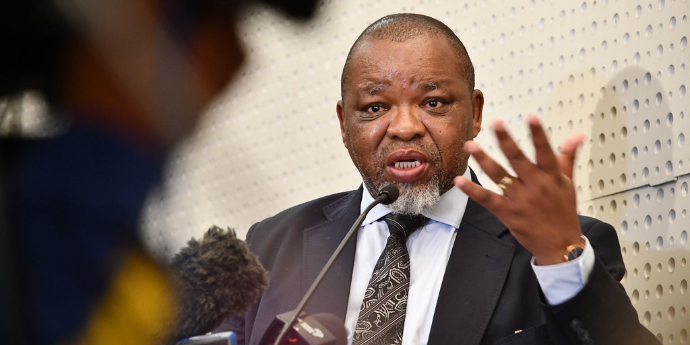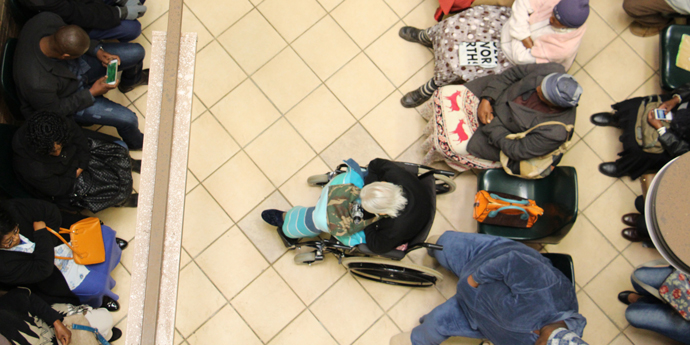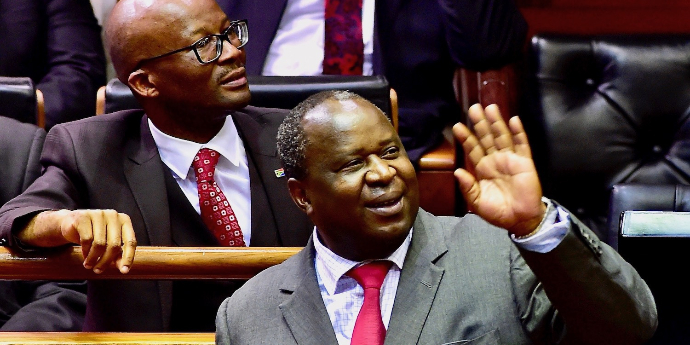Raymond Ledwaba's (MBA 2013/2014) book "The First-Generation Founder: How to build a start-up mindset and thrive" was launched on 8 May at the UCT GSB Cape Town campus. Hosted by the GSB Sustainable Business Club, which is run by current students and in conversation with UCT CFO Vincent Motholo, Raymond highlighted the challenges of building a business when you are the first member of your family to do so. This is a book about being an entrepreneur, but through the lens of lived experience and honest reflection.
We met at Stonebreakers Restaurant an hour before the event to talk about his life, his current businesses, and how he came to write a book.
The very first thing I learn about Raymond is that he has Imposter’s Syndrome. He is nervous about talking to the audience and what the reception might be. This strikes me as both immediately relatable and entirely unnecessary: here is a person that runs two successful organisations, is presenting to alumni and current students, and furthermore was invited by Tafelberg to write this book.
“Most times, people write books about their lives when they are successful. I couldn’t see what I could contribute as I don’t regard myself as there yet. I’m still learning and growing. I didn’t want to appear bigheaded.” I soon realised that it is this self-awareness and ability to be fallible that is at the core of Raymond’s success to date.
Humility, loyalty, and integrity: values learned from family and community
Raymond was born in Rathoke, a village in Limpopo and grew up with his father working remotely in Johannesburg. When Raymond was nine years old, he moved with his siblings and mother to join his father in Protea Glen, Soweto. His high school had strong links to the University of Johannesburg, which helped him undertake his first degree in accounting. “Being exposed to opportunities is important. It helps people see that there are other paths. I was fortunate to be able to go to UJ and that set me on a path to joining PwC”.
“My brother Jeffrey and I are the first in our family to start a business and I believe this was greatly influenced by our family being present in our lives. Around 60% of young people in South Africa do not have their fathers regularly in their lives. This makes a huge difference to your mindset. My father was pivotal in building my confidence. I never felt inadequate. I learned from him about the benefit of delayed gratification - of working hard; that success takes time. I also learned from him the values of love and loyalty. When I was 15, my mother had a stroke that left her unable to care for herself. My father cared for her. He put her first. He showed us that you stick by your promises and stay true to your vows. This informed how I think about business - what I commit to and the people that I work with.
This is the type of man my father was. In 1987, he passed an economics exam whilst he was studying part-time and working for Spoornet as a ticket examiner. He came first in the whole of Southern Africa in his school. He was subsequently accepted to London School of Economics (LSE) in the UK. He couldn’t take it up because there was no financial support. He carried on collecting tickets for another 40 years, without resentment. That was a big lesson to me - that ability doesn’t always equal success.
But the biggest business lesson from my father came about when he retired from Spoornet, now Transnet. He asked me to help him understand his pension fund. It was worth almost nothing. It showed me that working for a company does not necessarily yield a high enough reward. It showed me that I had to become an entrepreneur.”
The Entrepreneurial Journey - Love of Soccer Led to a Successful NPO
So how do you become an entrepreneur when you do not see people like you doing so? This is core to Raymond’s philosophy: people can move forward only when they become aware of possibilities. Being a CA makes him a cautious entrepreneur. In 2015, Raymond received a call from his previous soccer coach. His coach wanted to set up a tournament for young people in Soweto. The ask? R8 000. Raymond decided to go one better - he put it out to his MBA class and had R20 000 secured in the next 24 hours.
But it didn’t stop there. “When you spend money, you must have a clear idea of what the benefits are and the value you can create. I realised that a one-off tournament could be turned into something a lot bigger. Over the course of a few years, we put together an organisation that rendered services for big events at stadiums such as FNB Stadium, Orlando Stadium and Loftus. We ensured our young people worked at the events as stewards and car guards. We hosted soccer and netball events. I had to leave Absa Capital in the end to run it full time. Covid hit our events hard but Diski Nine9 now has an academy for 60-100 talented youngsters to be coached in netball and soccer. They can’t all join the Orlando Pirates of this world. We are very transparent about that. We are not only teaching sport, but we are also demonstrating by example and by expanding their worldview.”
Representation is critical - but modelling behaviour is as important
A common theme for Raymond is ensuring people understand that their opinion matters. “It isn’t enough to have a seat at the table. You need to have the confidence to be vocal too without the need to be loud. Cultural upbringing can make this very difficult in a corporate environment as we are taught to always be humble. People need to be shown that their opinion matters. It is a muscle we need to train.”
“During my time at the GSB I was fortunate to attend the MBA World Summit, which was hosted in Barcelona. I met the founder of this event and asked him why I was the only person there from Africa. He told me not to come with him with problems - but to come with solutions. By 2018, we hosted the first MBA World Summit in Cape Town with a significant number of delegates from across Africa. This experience stuck with me. You must proactively tackle problems and not be dissuaded if it has not been tackled before.”
Why founding a gaming company made sense next
Through Raymond’s expanding network, he learned more about the gaming industry, which is bigger than both the film and music industries combined. Almost half the world's population, three billion people, regularly use online gaming platforms. Much like the MBA Summit, Raymond identified an opportunity: less than 1% of games feature African narratives and are built by Africans. And so, ITTHYNK Gaming was established and is aiming to build a game that will represent Africans. Raymond looks at his role as to protect his developers - to answer to investors and to give them the space to create. “I went to visit the makers of Angry Birds. Rovio Entertainment is based in Finland. It took them 63 attempts to hit on their success, in a country with a good education system. We sometimes give up too easily here in South Africa. We need to challenge a defeatist mindset.”
Biggest challenges facing South African entrepreneurs today?
The first challenge is retaining talent. Young black graduates gravitate towards established companies because the perception is that order and processes (from big corporations) signify success. Working in a start-up with no guarantee of success is particularly hard to justify if you are the first person in your family to attend university. For a company like PwC as an example, “of the 500 graduates who start, around 10-15% stay after articles. This is normal for big companies, but it is much harder for small companies, particularly if they are still in early stages. People take the benefit of the training and move on to bigger opportunities. We are offering less certainty, and there is a perception that all founder-led companies will be a struggle,” comments Raymond.
A second challenge is the perception of South Africa internationally and how we, as a country, raise risk capital. A question put to Raymond was whether our government is doing enough? “You can have the same project with the same inherent risks, but investors will always prefer to fund a project in the Global North. As a country, we probably haven’t moved fast enough to persuade investors to part with risk capital and to give us the space and trust to build products. Companies in South Africa often have cash sitting on balance sheets to hedge against uncertainty. This doesn’t grow small businesses. We also often face implementation challenges that may not exist elsewhere - which is why it is so important to develop products that work within our context.”
Encouraging a mindset shift for our young people.
But the biggest challenge for young entrepreneurs is enabling a mindset shift. Not everyone is an entrepreneur, but you can still be entrepreneurial if you surround yourself with the right people. “If you grew up without the right role models, it is hard to even try. Being a CA, I’m trained to identify and mitigate risk. I’ve had to find the right people to partner with. I don’t know how people start and build companies on their own without a co-founder.”
“As first-generation founders, we understand sacrifice, and that is what I hope people will take away from my book. The second generation will face a whole different set of challenges. But what I hope my example can demonstrate to others is that I was fortunate to meet people who showed me different ways of doing things. People ask if I am lucky - and sometimes I wonder, why do people like me? Why did people help me? I think it is partly being in the right place at the right time - but that is because I was able to be in the right proximity to those who could help me in this journey. And then you need to be ready for luck and willing to put in the hard work.
“To keep trying, you need to build resilience. One way to do this is to serve others. Volunteering not only expands your network, but it opens your eyes to new opportunities. You don’t know where your support and interest will spark something. Whatever you do or work, use the privilege you have in your sphere of influence,” believes Raymond.
Leading with authenticity
Many of the subjects taught at the UCT Graduate School of Business focus on what leadership skills you need in business. Authenticity. Self-awareness. Being humble. Active listening. Living your values. Raymond's book is a self-aware, reflective piece on the journey towards being an entrepreneur. And that Imposter Syndrome? After the talk, Raymond asked me genuinely if “that was okay?” Yes, I assured him, it was excellent. He is a natural storyteller. And that is a gift. We need more people in our country to stay curious. Listen actively. And be willing to step in as a role model to our young people.
If you're interested in ordering a copy, you can do so here.







